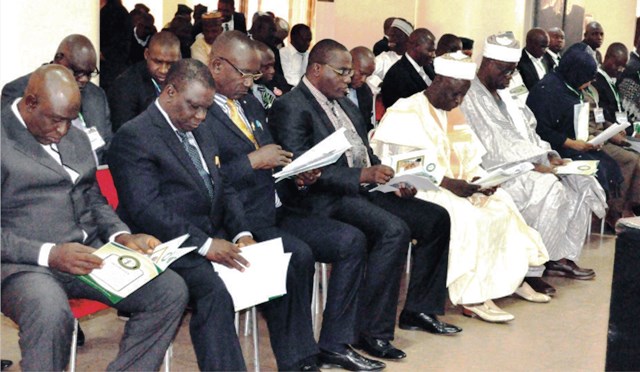Business
Shipowners Seek Quick Disbursement Of CVFF

Indigenous shipowners in the country have called for the quick disbursement of the Cabotage Vessel Financing Fund (CVFF) to enable them acquire more tankers and dry cargo vessels to enhance their operation.
The President, Shipowners Association of Nigeria, (SOAN), Engr Greg Ogbeifun said this in Lagos on Friday while emphasising on the need to create more jobs for youths.
Ogbeifun said it had become imperative not only to disburse the CVFF, but to also do it at a single digit interest rate, to effectively make provisions for purchase of more vessels.
He further urged stakeholders to focus on achieving a common goal of growing the Nigerian maritime industry and to boost the Gross Domestic Product (GDP), pointing out that if all stakeholders, as well as government agencies collaborate, the maritime industry will surge faster.
Ogbeifun in a statement made available to The Tide said the proper management of the maritime industry would assist the Federal Government to entrench diversification from oil, to non-oil revenue.
“The whole essence of Cabotage Vessel Financing Fund is to enable shipowners have access to the fund at a single digit interest rate.
“The political will from the Nigerian Maritime Administration and Safety Agency (NIMASA) had, however, been challenging.
“We ship owners must ensure that we are eligible to access the fund. We need to look at our processes and system to ensure we meet the requirements.
“We are making progress but we need the media to continue with the news that will enable every player in the shipping industry to do the right thing,’’ Ogbeifun said, stressing that Nigerian ship owners must focus on owning ships now.
The nation’s foremost shipowner frowned on merely concentrating on chartering ships from London by Nigerian ship owners, noting that purchasing tanker and dry cargo vessels would help in creating more jobs for youths.
Ogbeifun insisted that if Nigerian ship owners purchase vessels, it would enable indigenous shipping operators to charter vessels in Nigeria, rather than from London.
The Association President said the essence of CVFF which was introduced in 2004 based on two percent freight earnings of shipping operators engaged in coastal shipping services is to enable ship owners have access to the fund at a single digit interest rate.
Chinedu Wosu
Business
Two Federal Agencies Enter Pack On Expansion, Sustainable Electricity In Niger Delta

Business
Why The AI Boom May Extend The Reign Of Natural Gas

Business
Ogun To Join Oil-Producing States ……..As NNPCL Kicks Off Commercial Oil Production At Eba

-

 Politics4 days ago
Politics4 days agoAPC Releases Adjusted Timetable For Nationwide Congresses, Convention
-

 Sports1 day ago
Sports1 day ago2026 WC: Nigeria, DR Congo Awaits FIFA Verdict Today
-
Sports4 days ago
DG NIS Wants NSC Board Constituted, Seeks Increased In Funding
-

 Business4 days ago
Business4 days agoCustoms Seek Support To Curb Smuggling In Ogun
-

 Featured4 days ago
Featured4 days agoINEC Proposes N873.78bn For 2027 Elections, N171bn For 2026 Operations
-

 Sports4 days ago
Sports4 days agoSWAN Rivers Set-up Five Functional Committees
-
Sports4 days ago
NSC Disburses N200m Training Grants To 26 Athletes
-
News4 days ago
Police Bust Kidnapping Syndicate In PH

